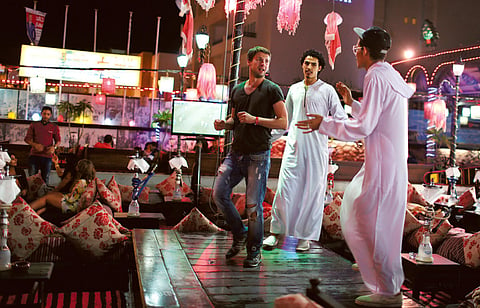Egypt’s tourism industry battered unfairly
The fact remains that the official investigation committee has found no technical evidence of terrorism in the Metrojet plane crash last November

The Red Sea resort of Sharm Al Shaikh, acknowledged by foreign governments to be safe, should be bustling with foreign tourists. Instead, hotels, stores and dive centres are shutting up shop. The exodus of major European and Russian charter companies in response to the Metrojet crash is turning Sharm Al Shaikh and other resorts on the Sinai Peninsula into ghost towns. Thousands of staff have been laid off and, according to Egypt’s Minister of Tourism, the industry has lost $283 million (Dh1.04 billion) every month since the tragic incident — revenue the country can ill afford.
It was the British Prime Minister David Cameron who first announced the cancellation of flights to Sharm Al Shaikh on the very day of the Egyptian President Abdul Fattah Al Sissi’s state visit to London; his decision based solely on United States-fed terrorist chatter. Other countries followed suit like lemmings without considering that this was the first time such an event had occurred and Malaysia had escaped such harsh treatment despite having lost three passenger planes (one disappeared, one shot down and one crashed) in just over a year.
In spite of Russia’s assertion that its plane was brought down by a bomb under a seat, the fact remains that the official Egyptian-led investigation committee, comprising experts from several countries, has found no technical evidence of terrorism. Be that as it may, Egypt has gone all out to strengthen security at all its airports, taking note of Russian and British proposals, and the global security company Control Risks has been tasked with reviewing the new measures to reassure visitors.
Promises, promises
Moreover, the country is spending millions of dollars to bolster security within its resorts. Passengers have noted the improvements on social media, reporting that security is now in line with international standards. So what’s causing the delay?
In 2014 alone there were several air crashes incurring fatalities — Nepal Airlines, Malaysia Airlines, TransAsia Airlines, Air Algerie, Sepahan Airlines and Indonesia AirAsia. Last year witnessed the crash of Germanwings Flight 9525, TransAsia Flight 235, Ceiba Intercontinental Flight 71 and Aviastar Flight 7503 besides the downing of Russia’s Metrojet. However, no country called for stopping flights to Nepal, Malaysia, Germany, Taiwan, Indonesia or Equatorial Guinea.
The British ambassador to Cairo has repeatedly praised the government’s efforts assuring the authorities that flights will be resumed shortly, but with airline after airline delaying their return, his words are beginning to sound like promises, promises.
Likewise, Russian President Vladimir Putin pledged to resume flights as soon as possible during a phone conversation with his Egyptian counterpart last November. He insists there was no political component to his decision, but now he’s asking for Russian monitors to be positioned at Egypt’s airports, which may be a step too far given the implication that Egyptian security personnel cannot be trusted.
The western media is also a contributor to the lack of tourists to Egypt, publishing either grossly exaggerated or patently false interpretations of violent incidents. For example, an attack on a hotel in Giza earlier this month elicited such headlines as ‘Masked gunmen shoot at tourist bus and hotel near Cairo’s Pyramids’ and ‘[Daesh] claims hotel attack near Giza Pyramids’. In reality, a group of Muslim Brotherhood members broke away from a nearby rally to target police officers with fireworks and pellet guns. Nobody was hurt.
Tourists are also being deterred by reports of terrorist attacks on the Sinai Peninsula carried out by a Daesh (the self-proclaimed Islamic State of Iraq and the Levant) affiliate. While it’s true that most Red Sea resorts are situated on the Sinai Peninsula, it’s a huge 63,000 sqkm landmass and whereas the self-ascribed “State of Sinai” militants are confined to the far north in an area between Egypt’s border with Gaza and the town of Shaikh Zuweid, the resorts are scattered around the southernmost tip.
There are few places on the planet that can give an ironclad guarantee as to the safety of visitors when Tunisia, Turkey, Indonesia, Saudi Arabia, Iraq, Pakistan, Afghanistan, France, Belgium and the United States of America have been recently hit along with several countries in Sub-Saharan Africa. Yet, in an ever more dangerous world, Egypt is being singled out, wrongly painted by governments and their media as a country where danger lurks around every corner.
I can’t help noticing too that while there is an outpouring of sympathy for western countries that are under attack, Egypt invariably gets blamed for so-called security flaws. Egypt’s cities and resorts are as safe as just about anywhere else. It’s a fascinating, diverse country with a warm and welcoming population. I can only hope this seeming witch-hunt ends soon, so that tourists will be attracted back to experience this brave ‘New Egypt’ for themselves.
Linda S. Heard is an award-winning British political columnist and guest television commentator with a focus on the Middle East.
Sign up for the Daily Briefing
Get the latest news and updates straight to your inbox



